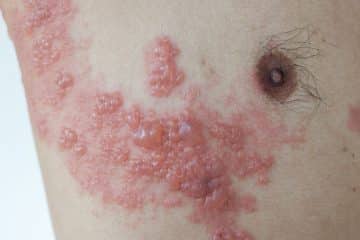It’s normal to experience different feelings after you’ve found out that you have herpes. You might feel ashamed, mad, upset, or embarrassed. However, always remember that you’re not alone. Besides, having herpes is nothing to be ashamed of. It doesn’t mean that you’re a dirty person. It only means you’re like any other human who got a common infection. In fact, herpes may happen to anybody.
If you’re curious about the stages of herpes or anything related to it, below are some of the things you should know about this infection:
There Are Different Types Of Herpes Viruses
One type of herpes virus is known as the herpes simplex virus (HSV), which causes both genital and oral herpes. There are two kinds of HSV, which are type 1 (HSV-1) and type 2 (HSV-2). The other types of herpes viruses may cause other kinds of diseases, such as shingles, chickenpox, infectious mononucleosis, and particular cancers.
Even after the first infection is cleared up, herpes viruses may remain dormant in the body. Sometimes, they reactivate depending on some factors.
Outbreaks May Happen Throughout Your Lifetime
After your first outbreak, your blisters heal, but the virus will remain in your body. Since there’s no cure available for herpes, you may experience outbreaks throughout your lifetime. For instance, you can have another outbreak after your first outbreak and the symptoms may reactivate in the same area. It may also reactivate without producing any kind of symptoms. However, the virus may reappear on your skin and can be contagious.
Fever and mental stress may often trigger outbreaks. So, make sure to learn how to reduce your stress naturally to avoid possible outbreaks. Usually, a recurrent outbreak heals faster and is less severe than your first outbreak. Over time, herpes outbreaks may also become milder and less frequent.
There’s No Cure For Herpes
At present, herpes still can't be cured. Fortunately, there are some medicines that can shorten or prevent outbreaks. Anti-herpes medications can be taken daily to reduce the spread of infection.
People with herpes may also opt for suppressive therapy as it provides coverage for people who have frequent outbreaks. During therapy, people with frequent outbreaks may take a small dose of any anti-herpes medication daily. This therapy is proven to lessen the outbreaks caused by herpes. You should also consider undergoing suppressive therapy for a long time if you want to achieve better results.
There Are Different Signs And Symptoms Of Herpes
Most people know that painful and tiny blisters are the common symptom of herpes. However, there are other signs and symptoms you should know.
Usually, blisters appear after a burning or an itchy sensation in the affected area. Once the blisters break open, the fluid becomes crusty before healing. The sores may stick around for a week or so. With oral herpes, blisters form on the mouth and lips, but they may also appear on the tongue or face. When it comes to genital herpes, the sores form on the buttocks, anus, cervix, vagina, or penis.

Regardless of the type of herpes you have, sores may also develop anywhere on your skin. Other symptoms may include:
- Burning sensation when urinating
- Headache
- Fever
- Swollen lymph nodes in the groin or neck
- Body aches
However, while most people experience the above symptoms, it’s also wise to note that others don’t have any symptoms but they’re living with herpes.
There Are Ways To Prevent Herpes
Since you can be infected with genital herpes from somebody who has no symptoms, it’s crucial to take steps to protect yourself. The best way to ensure that you don’t get this infection is to avoid any type of sexual intercourse.
Sex within a relationship with somebody who doesn’t have herpes is safe. Using condoms properly during intercourse can protect you, but it won’t be completely effective since the virus can be present on your skin and outside what’s covered by the condom.
When having intercourse with somebody with genital herpes, you can lessen the risk by avoiding any type of sex while your partner is still healing or experiencing symptoms. Your partner may also take antiviral medicines daily to avoid transmission. If you have herpes, don’t touch your cold sores to avoid spreading the infection to some parts of your body.
Being Sexually Active Is A Risk Factor For Genital Herpes
People with different sex partners are at higher risk of getting herpes. Somebody who had or has another sexually transmitted disease or with a weak immune system can be infected with herpes. Children, infants, and adults can also be infected with herpes through someone who carries the virus even when the symptoms aren’t present. Moreover, women are more likely to get herpes than men.
Conclusion
Most people live with herpes without realizing they have it. While its symptoms come and go, it’s contagious and incurable. Moreover, herpes doesn’t always show symptoms, so it’s essential to get tested and consult your doctor immediately to get the right treatment.








